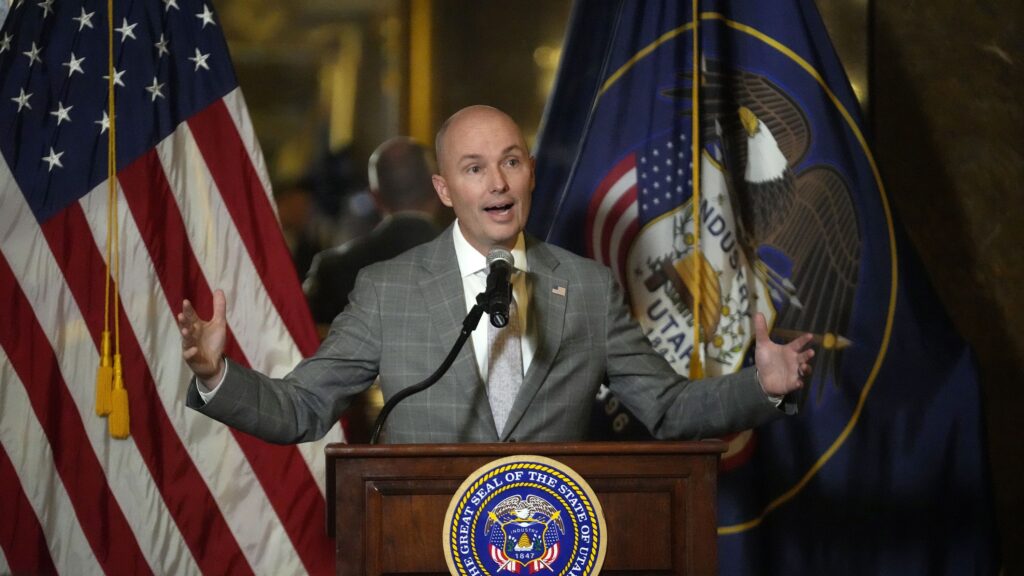ERIC SONDERMANN | Son of Ref. C? Prop. CC is at best its redheaded step-child


Between impeachment and a banner crop of Palisade peaches, Colorado voters have had no shortage of items to occupy the mind over the course of this fall. Leaving little attention and little political oxygen for a rather consequential issue that will be on ballots showing up in mailboxes just days from now.
Of course, I refer to Proposition CC, the measure to permanently “deBruce” state government by allowing it to keep and spend all tax revenue it receives in excess of TABOR limitations.
For newcomers to Colorado (no small constituency), TABOR is short-hand for the self-proclaimed “Taxpayer’s Bill of Rights,” passed by the voters a full 27 years ago. “DeBrucing” is code for TABOR’s author, the notorious and enigmatic Douglas Bruce.
Depending on where you stand politically, TABOR is either responsible for all that ails Colorado or is a salvation that has led to the state’s prosperity and success. Among political activists, you’ll find little middle ground between these two ardent viewpoints.
Proposition CC harkens back to Referendum C, a 2005 ballot proposal that provided the state with a five-year timeout from TABOR’s spending limits. Some portray Proposition CC as the son of Referendum C; others contend it is more akin to its illegitimate spawn.
Whatever your view of the issue, it is clear that this 2019 campaign for Proposition CC (if you can actually call it a campaign) bears zero similarity to the all-hands-on-deck, spare-no-expense crusade for Referendum C.
The predecessor effort in 2005 featured vast millions in spending, endorsements from any organization that could afford letterhead or an early-stage website, and an unprecedented media drumbeat led by Denver’s two (count them) still robust daily papers.
Of perhaps most political impact, the campaign brandished the support of Republican Gov. Bill Owens, then nearing his final year in office. Pundits will argue whether Owens’ endorsement of Referendum C served to end his political ambitions within the Republican Party or whether his seal of approval came about only because his political dreams had already hit a wall.
With all that political, financial and media firepower, let’s not forget that Referendum C passed narrowly with just 52 percent voter approval. And that its companion measure, Referendum D, went down to defeat.
That was a close win for a ballot measure that simply called for a five-year TABOR pause. Let’s fast-forward to the current debate over Proposition CC which seeks to exempt the state from TABOR spending limitations not in a time-limited way, but in perpetuity. A bold ask, indeed.
But while the ballot request may be ambitious, the development of the proposition and the campaign in its favor have been anything but. In fact, when a “campaign” conducts its formal kickoff less than two weeks before the distribution of ballots, it is a stretch to even regard it as such.
One has to ask whether this is a sign of disorganization or lack of motivation. Or whether there might be perverse, counter-intuitive genius at work here, relying on supremely attractive, mom-and-apple-pie ballot language to slide this through under the radar.
As the parties have further polarized, such tax questions have become more and more partisan. There is no Bill Owens type Republican of stature to offer his blessing to Proposition CC. In fact, you will find Owens listed among the leaders of the campaign against it.
Where there were two Denver newspapers beating the drum for Referendum C, one of those publications is long deceased and the other just came out in editorial opposition to this year’s proposal.
The Gazette of Colorado Springs also has editorialized against CC, saying it “would gut TABOR forever, giving politicians the authority to keep all revenues exceeding a commonsense formula – established entirely by voters – that keeps government spending within reasonable boundaries.”
Support for Proposition CC from Gov. Jared Polis can be described as tepid at best. He appeared less than enthused when Democrats in the legislature gave birth to this measure late in the session. And he spent a good deal of the summer trying, unsuccessfully, to cobble together a deal to revise it via a special legislative session. Don’t expect him to parachute out of an airplane to gin up voter excitement.
Further, in contrast to 2005, there is a well-funded opposition campaign this time around with various interests, including a solid dose of Koch money, financing multiple mailers and advertisements.
Clearly, Colorado circa 2019 is a quite different place than it was 14 years ago. Then, it was at the very start of an awakening for Democrats. Now, it is regarded as more a political shade of blue than even of purple. We’re about to see whether that change in complexion translates into a shift of attitudes with respect to taxes and TABOR. While the political wind now comes from a different direction, it is hard to discern that alienation from government has exactly abated.
Over the years since TABOR became a central feature of the Colorado Constitution, voters have evidenced a high degree of generosity in approving TABOR overrides and increased spending for many school districts and local governments – while playing much harder to get when it comes to statewide requests.
Will voters in the coming weeks, with attention scattered so many ways and with far fewer cues from the proponents, take this bigger, bolder step of permanently lifting TABOR-imposed revenue caps?
All of this likely serves as a precursor and stage-setter for a far higher-stakes clash next year when voters may well be confronted with the ultimate vote on an outright repeal of TABOR. Advocates of such total repeal have received the go-ahead from the Colorado Supreme Court, which seemingly feels free to rule at whim on questions of ballot title and single subject.
As opposed to seeking a TABOR tweak or amendment or exemption of override, a proposal for full repeal would bring about a political battle royale. (As if an election with Donald Trump on the ballot won’t provide sufficient intensity.)
Though, if Proposition CC passes, will some swing voters next year perceive that any problem was just addressed? Conversely, if Proposition CC fails, what’s the wisdom of moving forward with complete elimination of TABOR when voters just turned thumbs-down to such a half-step?
Eric Sondermann is a Colorado-based independent political commentator. His column appears every other Wednesday in Colorado Politics. Reach him at EWS@EricSondermann.com; follow him at @EricSondermann













